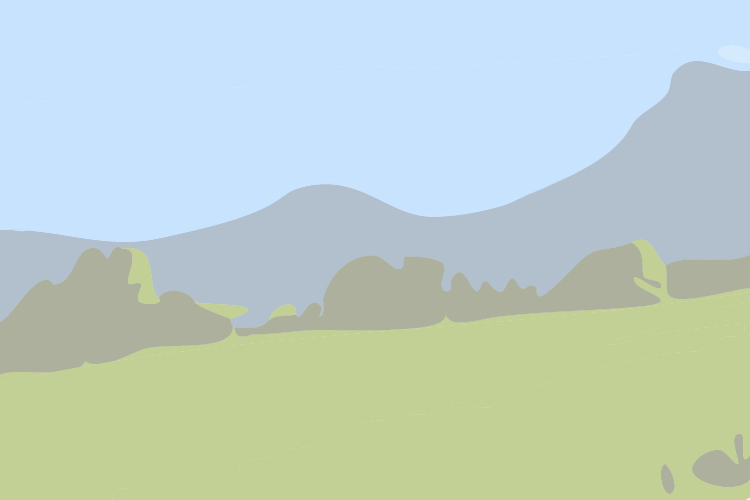IGN MAP




































































































Discover a driving route that will take you to see the must-see abbeys and sites in Roman Païs!
No signage
IGN MAP

AERIAL PHOTOS / IGN

MULTI-SCALE MAPS / IGN

TOP 25 IGN

SLOPE MAP (IGN PLAN)

CADASTRAL PARCELS

ICAO AERONAUTICAL CHARTS

MAP 1950 / IGN

MAP OF THE GENERAL STAFF (1820-1866)

COASTAL MAPS / SHOM/IGN

SCAN EXPRESS STANDARD / IGN

CLASSIC EXPRESS SCAN / IGN

OPEN STREET MAP

GOOGLE MAP - SATELLITE

GOOGLE MAP - MAP

GOOGLE MAP - HYBRID

IGN BELGIUM



Enjoy the superb environment as you relax with your family.The park was fitted out at the beginning of the 19th century. A French garden, two ponds, an English garden and flowerbeds stand between the walkways.As you stroll through, admire the magnificent sculptures by Albert Desenfans, Ducaju and Michiels. Don't miss the grimacing neo-Gothic gargoyles or the 17th century Baroque gate recovered from the St. Gertrude Collegiate Church.At the bottom of the garden, sports and leisure facilities are available. The Reine Astrid sports field and a large multipurpose gym await football, hockey, tennis, basketball and track teams.The listed estate has two styles of garden, French and English. There is a fountain and a lake of several hectares where fishing is permitted between April and December.

The Simone Tower, also called the Devil’s Tower and located close to the collegiate church Sainte-Gertrude of Nivelles, was for many years the premises of the League of Crossbowmen (Serment des arbalétriers), one of the civilian bodies charged with defending the ramparts of the city. Renovated in 2006, this tower is now the last testimony to the medieval walls which were constructed in the 12th century. There were no fewer than eleven towers and seven portcullis gates. The rampart was composed of a mighty fortification 2.50 m thick, surrounded by partially flooded moats outside, and reinforced with 8 m-wide embankments inside. In the tower, the guardroom, vaulted and pierced by arrow-loops, now houses a 3 dimensional map of the city of Nivelles as it looked around 1600, defended by the rampart and its moats. The tower is now accessible as part of a guided visit of the city of Nivelles.



The single-nave church of the Récollets in Nivelles in Walloon Brabant, also called SS Jean and Nicolas, will impress you with its architecture and history. In fact, it is the church of a convent of Franciscan monks which was attached to it. Taken together, it constitutes the only monastery complex preserved in Nivelles, and is also one of the rare examples of Franciscan architecture extant in our regions. The Récollets Church is part of a remarkable architectural complex built from 1524 onwards using funding provided by Charles V and his aunt Margaret of Austria. According to her wish, the monks – who were established in Nivelles 20 years after the death of Saint Francis of Assisi (1226) – were attached to the branch of the 'Friars Minor Récollets' (Frères mineurs récollets), who lived in an austere and retired way. After the disturbances and demolitions of the 1580s, the church was rebuilt and experienced a long period of prosperity and an incontestable spiritual radiance until the end of the 18th century. Since the departure of the last monks at the beginning of the 19th century, the building was allocated for a variety of uses: hospital, hospice, Royal secondary school and courthouse. The process of listing the monastery buildings is underway. The church, which is heritage-listed, was restored for worship in 1960 and its restoration was completed in 1972. The play of colours of the blue and white stones highlights the great simplicity of the edifice, typical of the Brabant Late Gothic style. The soaring bays and powerful buttresses elegantly punctuate the single nave of this vast sanctuary. The only decorative feature is the Flamboyant Gothic style tracery that adorns the tops of the windows. The interior space, profound and luminous, leaves an impression of soberness and vertical élan. The keystone of the choir is adorned with an escutcheon with the arms of Charles V. A bay in the south side wall houses the reconstruction of the shrine of Saint Marie d'Oignies.

The St. Gertrude Collegiate Church is the pride and joy of Nivelles, with its impressive 102m nave with two opposing choirs and its 11th century crypt. This is one of the largest Romanesque churches in the world, an exceptionally handsome, grandiose monument that was consecrated in 1046 by Wazon, Bishop of Liege, before Henry III Emperor of the Holy German Empire.The Collegiate Church is still in use, regularly assembling Christians from the St. Gertrude Parish.You can also visit the crypt, the archaeological basement, the cloister and the central steeple that houses the bells and carillon.The southern turret boasts the Jean de Nivelles jacquemart, a copper warrior some 2.08 m high.The Nivelles Collegiate Church is a must-see. Don't miss it!

Sculpture, panting, and furniture from the 15th to 18th centuries. In particular: Collection of late Brabançon Gothic sculptures. Collection of terra cotta drafts and sketches (bozzetti), plaster and marble works by the sculptor Laurent Delvaux (1696-1778). Brussels tapestry. Musical instruments. Nivelles furniture. Second floor devoted to prehistoric and Gallo-Roman archaeology: development of tools and technologies, aspects of everyday life. The objects come from excavations carried out in the region by the museum. In particular: excavations in progress on the Bons-Villers Gallo-Roman site at Liberchies (Pont-à-Celles). Large corner house built in 1764 to house the Trinitarian refuge of the Orival priory.

Exceptional listed Walloon heritage, the Villers-la-Ville Cistercian Abbey is remarkably preserved since the 12th century!Explore its reception-shop area with a wide choice of local products, its interpretive centre and its tour itinerary. Get a panoramic 180° view of all the Abbey.The 8 beautiful gardens in very different styles are also to be admired. The Physic Garden is filled with all sorts of plants used in everyday life in the Middle Ages while the Monks’ Garden and Pharmacy Garden present medicinal plants past and present. The Abbey Garden, the Garden of Scents with its Meditative Path, and the timeline of old garden rosebushes form the three ornamental gardens. Two fruit gardens complete this set, the conservation and experimental orchard and the port of Brussels orchard.With the family of friends, explore Villers-la-Ville Abbey, its architecture, its history, its gardens and its animals!










30km from Brussels, the Bois-Seigneur-Isaac Château, listed as ‘exceptional real estate of Wallonia’, was converted from a feudal fortress in the 18th century. Its classic French-style facade is adorned with wide arched bay windows and topped by a triangular pediment. There is a round tower with arrow slits, a reminder of its days as a feudal fortress. The castle, which probably dates back to the 12th century, was one of a series of fortresses protecting the County of Hainaut from the expansionist intentions of the Dukes of Brabant. Behind the chateau, you can take a stroll around a charming French garden with an English-style park at the end. There are many wonderful trees to admire, several centuries old. For five generations the Bois-Seigneur-Isaac Château has belonged to the Snoy family. It was home to Jean-Charles Snoy et d'Oppuers, a co-signatory of the Treaty of Rome which marked the birth of the European Union. Did you know that the village of Bois-Seigneur-Isaac takes its name from Isaac of Valenciennes, a member of an illustrious Hainaut family? In the late 11th century he planted a wood, which still exists today, 500 metres from the chateau along Route de Lillois.


